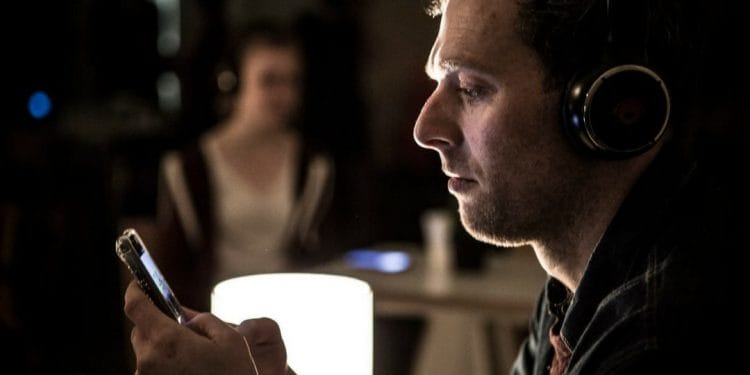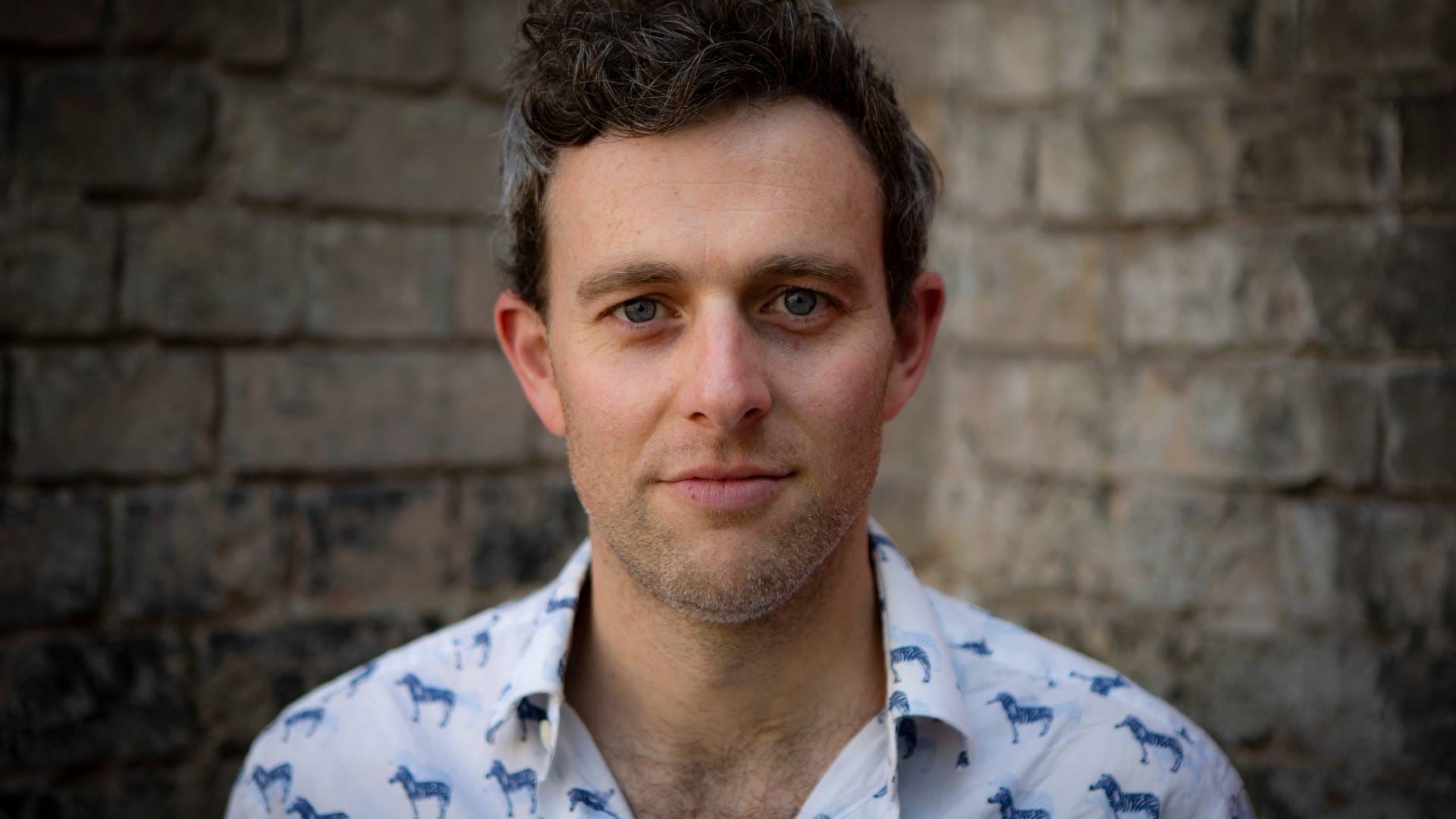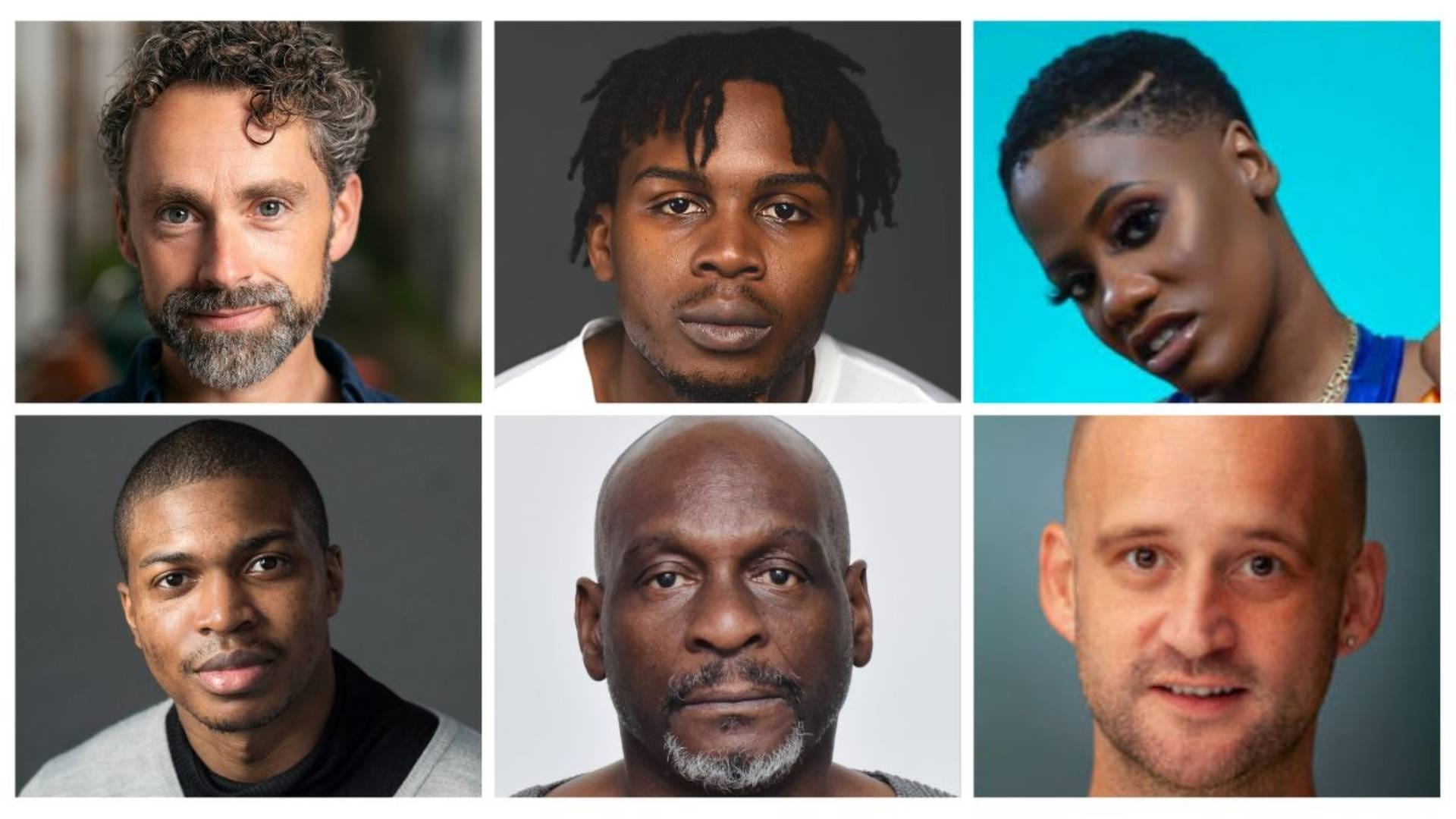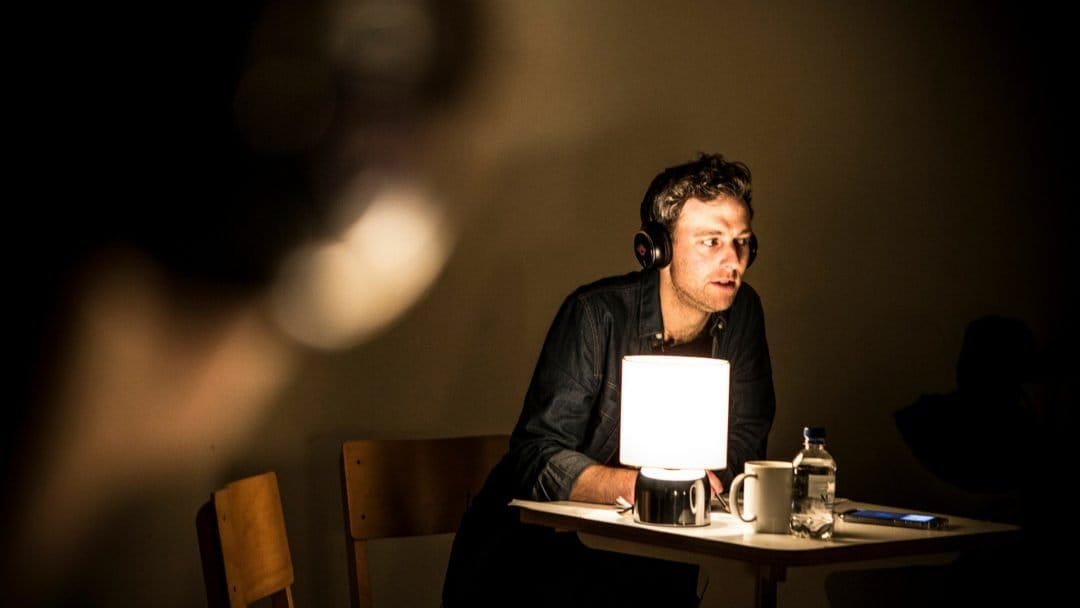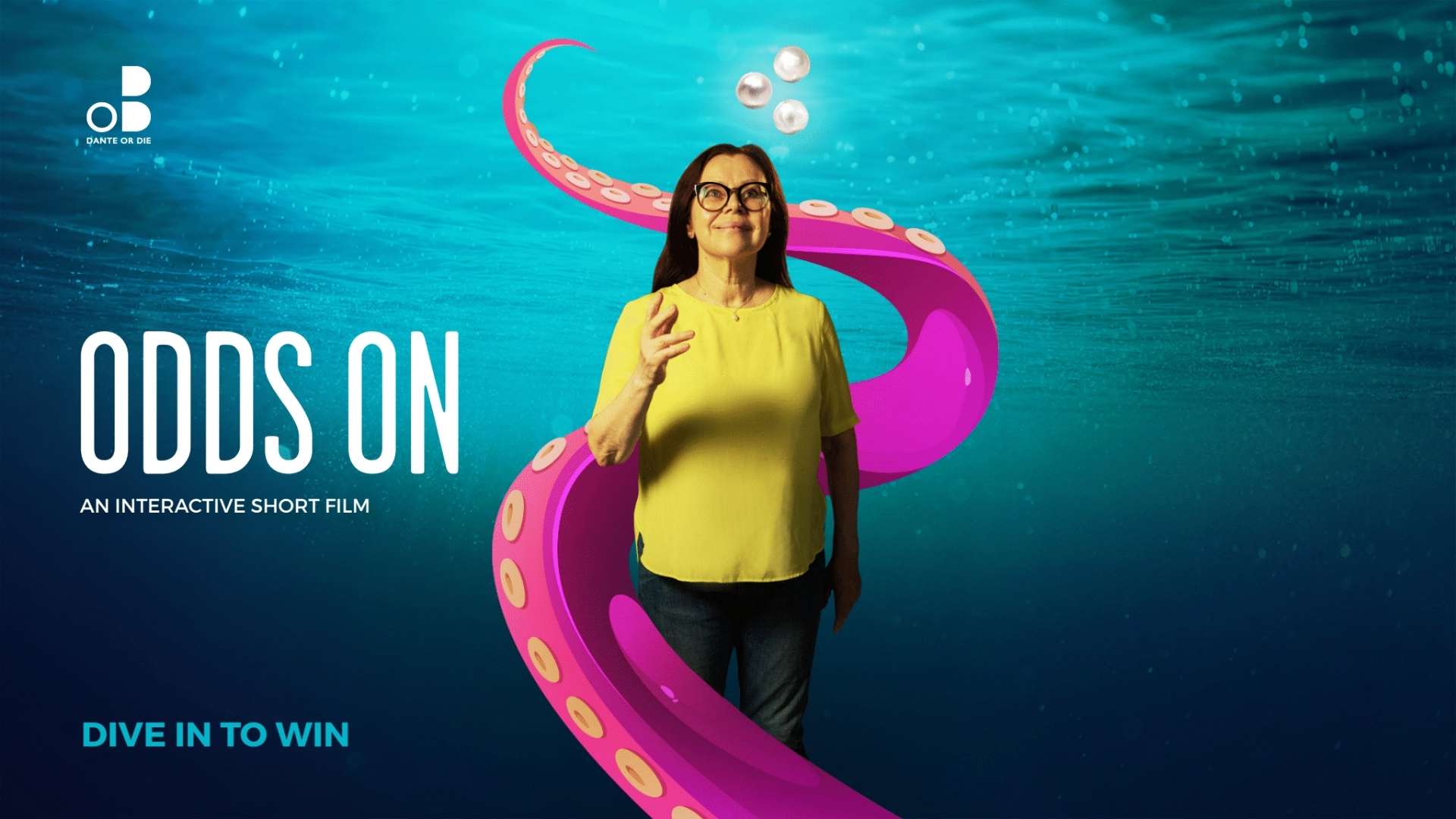Dante or Die has joined forces with writer Chris Goode to examine what happens to our digital identities after we die in User Not Found.
Directed by Daphna Attias and performed by Terry O’Donovan, User Not Found will be performed in cafés around the UK and will open as part of the Traverse season at the Edinburgh Festival Fringe before embarking on a UK tour.
We caught up with Daphna and Terry to find out more.
You’re bringing User Not Found to Edinburgh Fringe and on tour, what can you tell us about it?
The performance takes place in the gorgeous Jeelie Piece café. You can grab a coffee or a cake and we will give you a smartphone and a pair of headphones. Soon you’ll start to hear Terry’s voice in your headphones – it’s like he’s in your head – and then you realise he’s sitting amongst you. He gets a text message with terrible news about his recently ex-boyfriend, Luka. All of your phones light up and you get to read all of the texts that he gets. From that point onwards, you’re kind of seeing the world from Terry’s point of view as he learns that he’s been made Luka’s digital executor and has to decide whether to keep all of his digital assets. We’ve been collaborating with a brilliant team of technical creatives from a company called Marmelo who have built an app from scratch to make the performance work – they’ve been utterly amazing to work with. They’ve even managed to integrated captions into the phones so that all of the performances are accessible for deaf audiences.
It sounds really unusual, where did the inspiration for it come from?
Three years ago we read Caroline Twigg’s article published in The Guardian in which she questioned what should happen to her husband’s digital legacy after his sudden and unexpected death. Her writing is poignant yet aware, a moving depiction of grief that was magnified through the screen-life of the man she had lost in reality. Immediately after reading her story, we began talking about the fact that we’d never really considered this question and how relevant it felt. We instinctively began imagining a Dante or Die-style performance in which the audience were up close to the experience of someone dealing with these questions.
As soon as we started talking to friends and colleagues about the idea we realised that it was a really exciting proposition because it sparked brilliant conversations. Loads of people still don’t realise that Facebook has a legacy contact option and that there are a lot of companies beginning to monetise the digital afterlife through platforms that you can send messages beyond the grave. We wanted to spark these conversations, especially with the growing concerns about privacy, data and what remains about us in the ether. But we also wanted to steer clear of Black Mirror style horror about our digital selves. We love Black Mirror, but we were interested in exploring the human, emotional connection we all have with these devices that have become like another limb to us.
How did Chris Goode become involved?
We had three adjectives in mind when searching for a writer to collaborate: provocative, warm and human. Having been fans for many years, Chris Goode was top of the list. He was quite sceptical about the idea of creating a piece with technology so entwined, but during our research & development period last year Chris put out a twitter poll asking: If there was a button that you could press at the moment of your death that would delete your entire online existence would you push it? At the end of the day over 70 people had voted and the result was 52% to 48% – similar to a very recent contentious referendum! The fact that there was such a split convinced him that this is a really contentious issue that we can provoke conversation about. Creating User Not Found with him has been a dream. Generous and insightful in his united approach, he challenged our perceptions and has crafted a script that has been an amazing journey for us to direct and perform together.
Daphna, what are the challenges of directing a production like this one?
Daphna: One of the most difficult things was learning how to collaborate with our different creative partners. It takes so much longer to build an app or change a page of screen information than we’re used to. We had to leave month-long gaps between rehearsal periods so that Marmelo had the time to build all of the app. Terry and I had to learn how to write in great detail what needs to be on each screen so that they could then build it – it took a while to figure out the best way to collaborate.
In terms of directing the performance itself it’s been fascinating to find a smooth way to direct the audience’s gaze at different elements. I had to really break down when I wanted them to look at the phones or Terry and help them not to feel like they were missing out. Working with Zia Bergin-Holly on the lighting design has been a brilliant help with this part of the process. We’ve done two previews now and it’s exciting to see the audience’s response and we’re constantly reworking it to make the experience flow smoothly.
Terry, what are you most looking forward to when it comes to performing in such an unusual production?
Terry: It’s the first time I’ll be performing by myself, so it’s a huge challenge for me. Although – it doesn’t feel like I’m by myself because Philippa and Tom, our Technical Stage Managers are with me firing the app on the phones and managing Zia Bergin-Holly’s wireless lighting design so there’s a lot of support!
The fact that I’m actually having a conversation with the audience is really exciting. I’m sitting in amongst everyone, which means I need to respond to the people in the room. This means that every day the performance is different. I’m so looking forward to being up close to everyone and gently taking them on this funny, yet emotional journey.
How does performing User Not Found in cafes help the overall feel of the production?
Daphna: One of our initial instincts was to stage the performance in a café – the contemporary office / thinking spot / anonymous communal zone. So many of the people sitting around us in cafes are constantly connecting to the world through their screens whilst sitting in these cosy, communal spaces, insulated from our chats by their headphones. What if the person sitting next to us was endlessly watching the pop music video that reminded them of their lost lover, or re-reading their old WhatsApp messages, or getting a Facebook message with the worst news possible? It became clear that creating the insular world of an individual in a communal space would be central to the work.
One of Chris’ lines in the script notes that we all go to cafes to be together – alone together. The café grounds us all in reality rather than the virtual and reminds us that communal experiences are so important to the human condition.
Has User Not Found made you think differently about your digital identity? Do you think it will have the same effect on audiences?
Terry: I’ve actually become a little bit obsessed with monitoring my privacy and online existence. I started listening to an amazing podcast during our research period called Note to Self, which investigates how we can live better lives whilst still living within the digital world. I’ve changed all my location settings and privacy settings, I use Duck Duck Go instead of Google and keep boring my friends and family about it. Although I still haven’t deleted my Facebook account – but I’m gearing up to it!
Daphna: I’ve never had a Facebook account so I’m sorted there. It’s definitely made me more aware but I do love having all my photos online. I actually really like the memory videos that Google make and send me of my kids!
User Not Found plays as part of the Traverse Season at Edinburgh Festival Fringe at Jeelie Piece café from 3 to 26 August at 8pm and will tour the UK until end of October 2018. Full tour dateshttp://danteordie.com/


